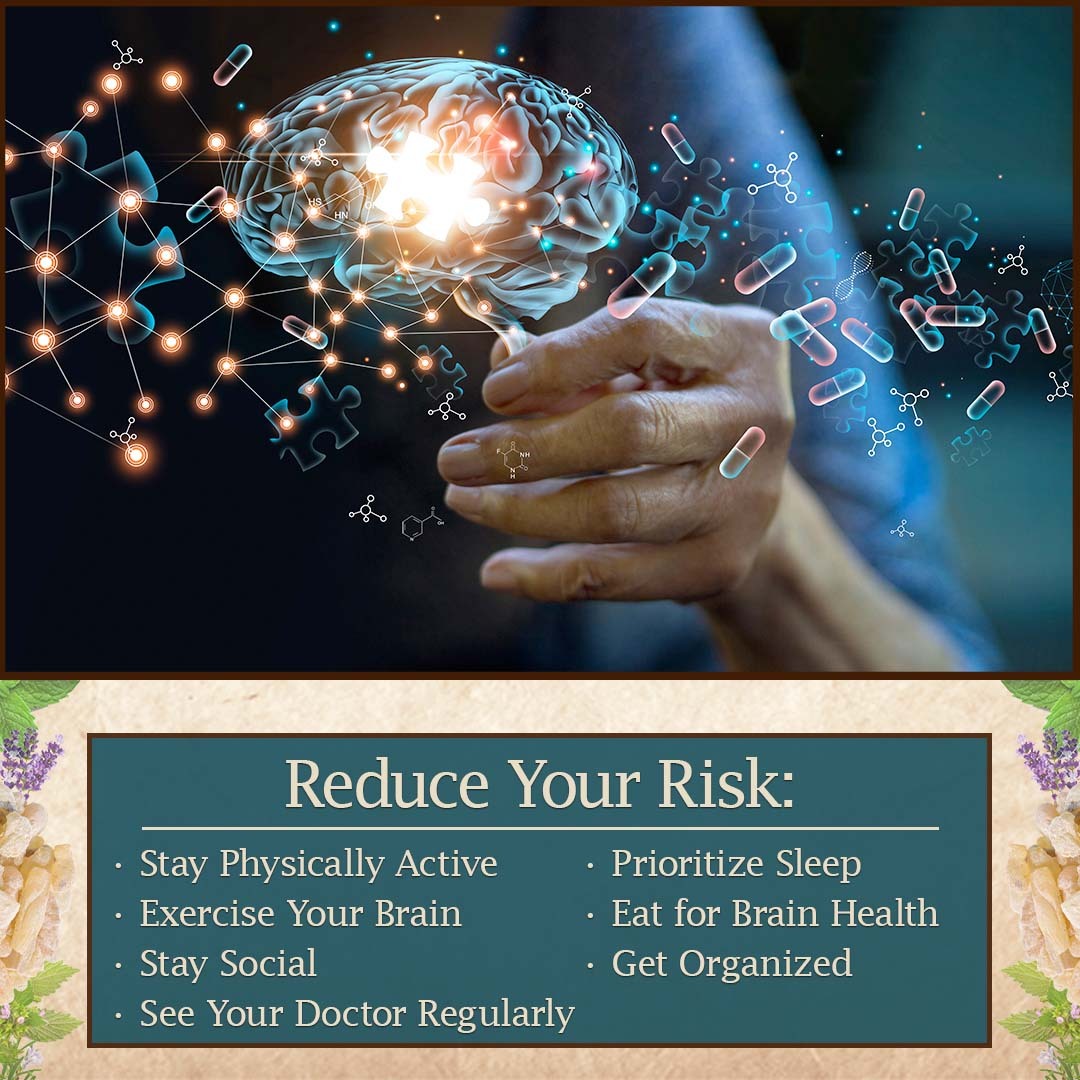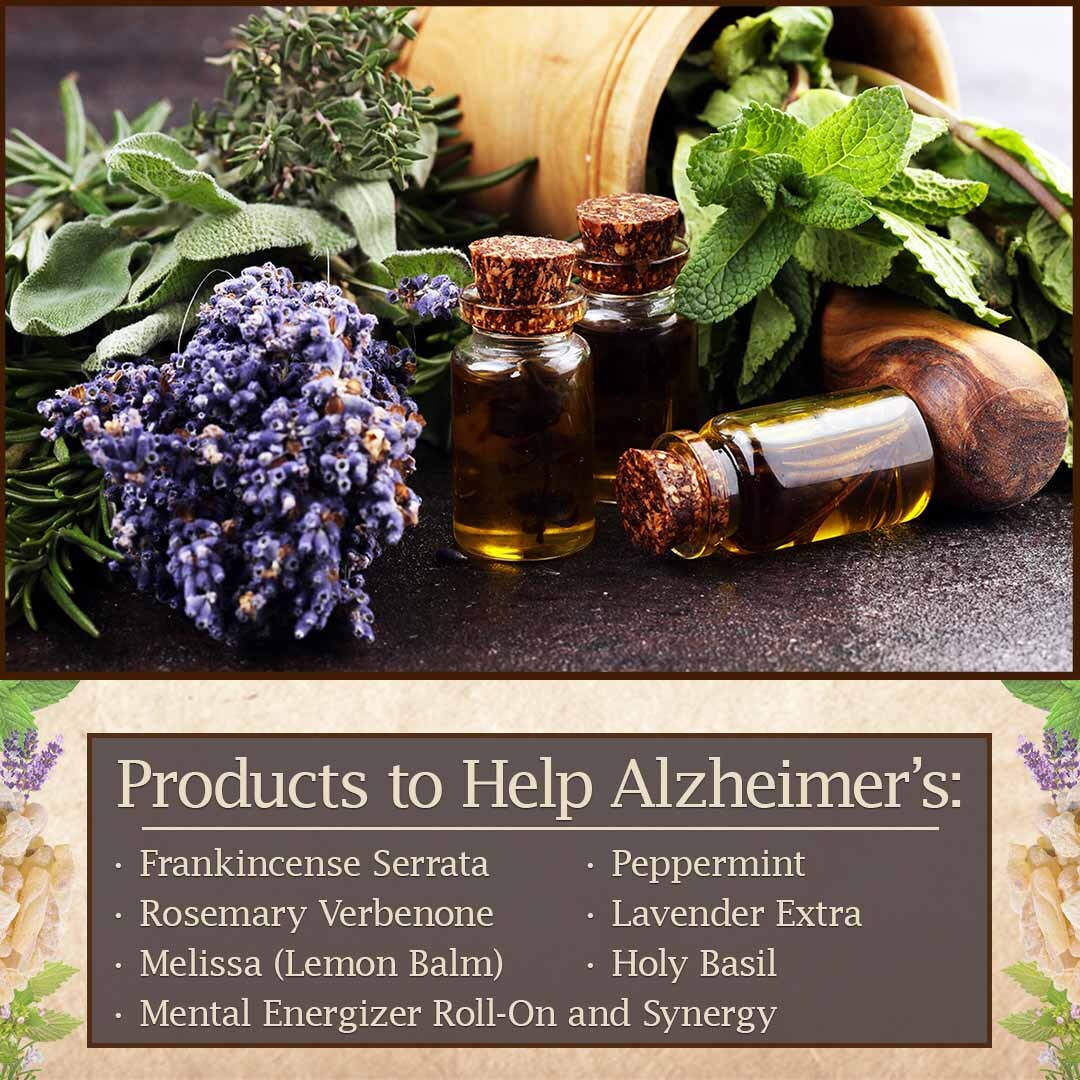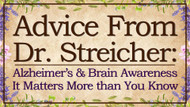June is Alzheimer’s and Brain Awareness Month: Why It Matters More Than You Think
Jun 26th 2025
Posted by Dr. Christoph Streicher and Maddie O.
Each June, we’re invited to shine a light on one of the most devastating neurological disorders: Alzheimer’s disease. Marked by the color purple, this month is dedicated to raising awareness, sharing knowledge, and supporting those impacted by Alzheimer’s and other forms of dementia.
If you’re anything like me, you may have once thought of Alzheimer’s as something that simply “happens when you get older.” But it’s so much more than that. Alzheimer’s is a progressive disease that gradually affects memory, thinking, behavior — and eventually, physical functions as the brain deteriorates. It’s a heartbreaking journey that many families, including my own, have had to face.
Because it runs in my family, learning about Alzheimer’s isn’t just a personal interest — it’s a priority. Education and proactive care are essential. In this article, we’ll explore what Alzheimer’s really is, how it affects the brain, and most importantly, what you can do to support brain health, reduce risk, and help others along the way.
What Is Alzheimer’s? How Do You Get It?
 Alzheimer’s disease is a progressive brain disorder that slowly impairs memory, thinking skills, and behavior. It’s the most common form of dementia, affecting an estimated 3 million people in the U.S. each year. While most cases develop later in life — typically after age 65 — there is also a rarer form known as Young-Onset Alzheimer’s, which occurs in people under 65. Though it’s less common, it presents the same core symptoms and challenges.
Alzheimer’s disease is a progressive brain disorder that slowly impairs memory, thinking skills, and behavior. It’s the most common form of dementia, affecting an estimated 3 million people in the U.S. each year. While most cases develop later in life — typically after age 65 — there is also a rarer form known as Young-Onset Alzheimer’s, which occurs in people under 65. Though it’s less common, it presents the same core symptoms and challenges.
The disease doesn’t look the same for everyone. Early signs often include memory loss, misplacing items, asking the same questions repeatedly, or becoming increasingly confused, even in familiar settings. As Alzheimer’s progresses, symptoms can become more severe — individuals may lose the ability to walk, speak, or care for themselves. Some may experience dramatic weight changes, emotional instability, and complete disorientation, even around loved ones.
So, what causes it? While there’s no single answer, experts believe Alzheimer’s results from a combination of genetics, lifestyle choices, and environmental influences that affect how brain cells function and communicate. In some families, a genetic link makes the risk more significant. In others, chronic health conditions or long-term lifestyle habits may gradually increase vulnerability. The good news? Many of these factors can be managed or improved — something we’ll dive into later.
Is There a Cure for Alzheimer’s?
While Alzheimer’s is widely regarded by the medical community as a progressive condition without a definitive cure, some practitioners and researchers have explored alternative approaches that may offer hope. For example, dietary changes — such as removing gluten and processed foods — have been studied by a small group of European researchers in Austria, including German physician Ruediger Dahlke, with anecdotal reports of symptom improvement and even reversal.* While more peer-reviewed research is needed to verify these outcomes, such findings open the door to new conversations around prevention and potential healing pathways beyond conventional treatment.
The Mayo Clinic recommends several evidence-based strategies to support cognitive function and potentially reduce your risk:
|
1. Stay Physically Active: Regular movement improves blood flow to the brain and supports overall cognitive health.* You don’t have to become a marathon runner — start small. Try walking after dinner, taking the stairs, or doing light stretching in the morning. Aim for about 150 minutes of moderate aerobic activity (like brisk walking) or 75 minutes of vigorous activity (like running) per week. |
|
2. Exercise Your Brain: Just like your muscles, your brain thrives on a challenge. Engage in mentally stimulating activities such as puzzles, word games, or even learning a new skill or language. Personally, I enjoy word searches and crosswords — and even switching up my daily routine or route to work keeps things fresh. |
|
3. Stay Social: Meaningful interactions with others can reduce stress, elevate mood, and protect against memory loss.* Even if you’re introverted or prefer quiet time (you’re not alone!), finding ways to connect — whether it’s a quick chat with a friend or a weekly group activity — can make a big difference. |
|
4. Get Organized: Keeping your space and schedule organized can help reduce forgetfulness and boost focus.* I rely on a whiteboard, calendar, and planner — though I’ll admit I don’t always use them as consistently as I should! Simple tricks like always placing your keys and phone in the same spot can be game-changers. |
|
5. Prioritize Sleep: Adults need about 7–9 hours of quality sleep each night. Rest gives your brain time to recharge, process memories, and repair itself.* Start winding down earlier, limit screen time before bed, and create a calming evening routine to support restful sleep.* |
|
6. Eat for Brain Health: A balanced diet fuels your body and your mind. Focus on fruits, vegetables, whole grains, and lean proteins. I’ve noticed firsthand how a healthy meal helps me think more clearly. Good nutrition supports better concentration, memory, and energy.* |
|
7. See Your Doctor Regularly: If you have chronic health issues or concerns about memory loss, staying in regular contact with your healthcare provider is essential. Your doctor can guide you with personalized recommendations, early screenings, and treatment plans tailored to your needs. |
While there may not be a cure yet, taking steps today can help you maintain cognitive health and improve your quality of life in the years to come.
But What About Essential Oils — How Can They Help?

In recent years, there has been growing interest in the use of Essential Oils and herbs to support brain health, including their potential role in managing Alzheimer’s symptoms. In fact, more than 30 research articles have explored the medical benefits of Essential Oils in this area. While most of the current data is qualitative — based on observed effects rather than strict lab-based metrics — the findings are still incredibly promising.
Many of these studies highlight the benefits of aromatherapy and Essential Oils — especially those from the Mint family — in supporting cognitive function in individuals with Alzheimer’s. Oils like Peppermint, Rosemary, and Sage have shown potential to enhance alertness, memory retention, and mood regulation.* While commonly used for hair health (see Amrita’s Hair Growth Serum), these oils also work beneath the surface to support the mind and nervous system.* There’s also emerging research that suggests a connection between type 2 diabetes and Alzheimer’s, which opens the door to exploring how oils that support metabolic function could also play a role in brain health.*
Of course, research articles can be packed with complicated medical terminology, so let’s break it down. One key component of many Essential Oils is something called monoterpenes. The prefix “mono” means one, and “terpenes” are small, naturally occurring molecules that are fat-soluble — meaning they can easily move through the skin, the lining of your nose, and even your bloodstream. Once inhaled or applied, these compounds can quickly interact with your neural pathways and potentially influence brain activity.*
You may also come across discussions of α-amylase in this context. This is an enzyme — not a component found in Essential Oils — but researchers are exploring whether certain oils can influence how the body produces or regulates this enzyme. Since alpha-amylase plays a role in both digestion and stress response, it could hold indirect relevance for Alzheimer’s management, particularly in cases where diabetes is also present.*
While more clinical studies are needed to fully understand how Essential Oils can be used in Alzheimer’s care, early findings suggest they may offer supportive, non-invasive ways to enhance mental clarity, reduce agitation, and improve quality of life — both for patients and their caregivers.*
What Essential Oils Help Fight Alzheimer’s?
Now that we’ve explored how Essential Oils may support brain health, you might be wondering: which Essential Oils actually help in the fight against Alzheimer’s? It's not as simple as picking up a random oil from the store shelf. Scientific research points specifically to certain plants — particularly those in the Mint Family (Lamiaceae) — as offering the most potential cognitive benefits.*
So, why the Mint Family? Research has shown that herbs in this family contain compounds that may help regulate neurotransmitters in the brain, reduce inflammation, and support mental clarity — all essential factors in managing Alzheimer’s symptoms.* Common Essential Oils derived from Mint family herbs include:
In addition to these, Frankincense and Lemon Myrtle — although not part of the Mint Family — have also shown strong potential in Alzheimer’s-related studies. But which of these should you reach for first? In studies measuring acetylcholinesterase (AChE) activity, Frankincense, Rosemary, and Lemon Myrtle outperformed Lavender, Peppermint, and Oregano. Why does this matter? Because acetylcholinesterase is an enzyme that breaks down acetylcholine, a neurotransmitter crucial for memory and learning.* People with Alzheimer’s tend to have lower acetylcholine levels, so slowing its breakdown could help improve or preserve brain function.*
Although Spearmint and Melissa (Lemon Balm) weren’t part of the specific AChE study, they are still members of the Mint Family and have long-standing reputations for supporting calm, focus, and cognitive clarity.* While there's no hard data yet on their direct effect on Alzheimer’s, their traditional use in mental wellness makes them worth considering as part of a broader aromatherapy routine.*
Now that you know which Essential Oils may help, the next big question is: where do you get them — and how do you use them safely and effectively?
How Can Amrita’s Products Help You?
If you’re looking for natural ways to support your cognitive health, Amrita Aromatherapy offers a carefully curated selection of Essential Oils and Blends designed to energize the mind, enhance clarity, and ease symptoms often associated with Alzheimer’s.*
Here are some standout options that may help support mental function and emotional well-being:
|
|
|
|
|
|
|
|
|
|
Whether you’re supporting a loved one with Alzheimer’s or taking proactive steps for your own brain health, these Essential Oils and Blends can be powerful tools to add to your wellness routine.
Final Thoughts: Go Purple, Take Action, and Stay Connected
Your brain is the command center of your entire body — when it’s healthy, everything else functions better. But when it’s neglected, challenges like Alzheimer’s can take a heavy toll. With over 3 million people diagnosed every year in the United States alone, it’s vital to raise awareness, stay informed, and take proactive steps to protect our cognitive health.
June is Alzheimer’s and Brain Awareness Month, so let’s honor it by going purple and standing in solidarity with those affected. Remember, you are not alone — whether you’re navigating symptoms yourself or supporting a loved one through the journey.
Hopefully, you’ve discovered something new in this article — like how Essential Oils from the Mint Family (and beyond!) may help support mental clarity and emotional well-being.* We’ve also covered a variety of lifestyle habits and natural tools you can use to keep your brain sharp and resilient for years to come.*
I truly enjoy sharing insights that can empower and support others on their wellness journey. Whether you're learning more about Alzheimer's for yourself or for a loved one, I hope this article offered helpful information and encouragement. Taking care of your brain is one of the most meaningful investments you can make — so keep learning, stay proactive, and know that you're part of a larger community committed to brain health and well-being.
*These statements have not been evaluated by the Food and Drug Administration. These products are not intended to diagnose, treat, cure, or prevent any disease.
References:
- Alzheimer’s Association. (n.d.). June Is Alzheimer’s & Brain Awareness Month. Retrieved May 20, 2021, from https://www.alz.org/abam/overview.asp
- Mayo Clinic Staff. (2020, July 08). Young-onset Alzheimer’s: When symptoms begin before age 65. https://www.mayoclinic.org/diseases-conditions/alzheimers-disease/in-depth/alzheimers/art-20048356
- Mayo Clinic Staff. (2021, March 10). Memory loss: 7 tips to improve your memory. https://www.mayoclinic.org/healthy-lifestyle/healthy-aging/in-depth/memory-loss/art-20046518
- Agatonovic-Kustrin, S., Kustrin, E., & Morton, D. W. (2019, March). Essential oils and functional herbs for healthy aging. National Center for Biotechnology Information. https://www.ncbi.nlm.nih.gov/pmc/articles/PMC6334595/
- The Free Medical Dictionary. (n.d.). Monoterpene. Retrieved May 24, 2021, from https://medical-dictionary.thefreedictionary.com/Monoterpenoid
- The Free Medical Dictionary. (n.d.). Alpha-amylase. Retrieved May 24, 2021, from https://medical-dictionary.thefreedictionary.com/alpha-amylase
- Petruzzello, M. (2020, August 26). List of plants in the family Lamiaceae. Britannica. https://www.britannica.com/topic/list-of-plants-in-the-family-Lamiaceae-2035853
- The Free Medical Dictionary. (n.d.). Acetylcholinesterase. Retrieved May 24, 2021, from https://medical-dictionary.thefreedictionary.com/Acetylcholinesterases
- The Free Medical Dictionary. (n.d.). Hydrolysis. Retrieved May 24, 2021, from https://medical-dictionary.thefreedictionary.com/hydrolysis
- The Free Medical Dictionary. (n.d.). Choline. Retrieved May 24, 2021, from https://medical-dictionary.thefreedictionary.com/choline

